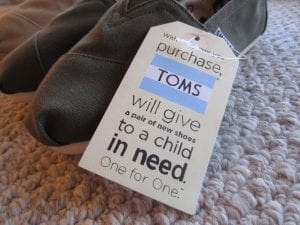Sustainable Finance and CSR Are No Longer an “Option.”
By Thomas MacIntosh |
4 min read
Sustainable Finance and CSR Are No Longer an “Option.”
A History of CSR
Corporate social responsibility, (CSR), used to make a company stand out. Connecting themselves to causes their consumer’s valued was a great way to build brand trust, distinguish themselves from competitors, and drive marketing campaigns that made people think about the company. However, the concept dates back further than one may guess.
In the 1800s, Andrew Carnegie wrote about the almost moral-obligation of CSR in The Gospel of Wealth, writing;
“Thus is the problem of Rich and Poor to be solved. The laws of accumulation will be left free ; the laws of distribution free. Individualism will continue, but the millionaire will be but a trustee for the poor; intrusted for a season with a great part of the increased wealth of the community, but administering it for the community far better than it could or would have done for itself. The best minds will thus have reached a stage in the development of the race iii which it is clearly seen that there is no mode of disposing of surplus wealth creditable to thoughtful and earnest men into whose hands it flows save by using it year by year for the general good.”
In 1943, Robert Johnson, founder of Johnston and Johnston, made CSR a part of his companies credo.
“We are responsible to the communities in which we live and work and to the world community as well. We must help people be healthier by supporting better access and care in more places around the world. We must be good citizens — support good works and charities, better health and education, and bear our fair share of taxes. We must maintain in good order the property we are privileged to use, protecting the environment and natural resources.”
And although both men should be applauded for their early insights into the social role of the company, that ideology is no longer innovative, it’s the norm.
Here comes generation Z
For Gen. Z consumers, CSR is not an option for a company. Thanks in part to the immediateness of social networks, they have seen atrocities in real time, sometimes uncut, and can stay up to date on every developing misstep a company may make, with a forum to let them know. This information allows these young consumers to make active decisions about what brands to trust and support.
In one survey, 76% of Gen Z. buyers said they have purchased or would consider purchasing, from a company that supports social causes, in order to support those efforts. Possibly more important for the average business owner, 67% of that same group said they have avoided purchasing from, or would consider avoiding purchasing from, a company that did not stand for what they believed in.

Toms’® One for One® campaign; aligning the company with CSR efforts in developing nations.
This isn’t a generation to take lightly anymore either. Gen Z. makes up 40% of all active consumers and has an annual spend of $200 billion globally.
CSR is even penetrating the classroom. Investment students are now being taught to evaluate companies based on their ESG, or environmental, social, and governance performance. 26% of all professionally managed assets in the United States are invested sustainably, (according to the Global Sustainable Investing Alliance, 2018), up from just 18% four years earlier.
As generation Z becomes influencers in the global workplace, marketplace, and securities markets, companies will need to place greater emphasis on their CSR and sustainable practices.
What can you do as an SME?
Even small and medium enterprises can make impacts on their CSR. By focusing on their immediate region, these SME’s can support smaller initiatives with less of a budget, but who give back to the community around them. These local projects often require less capital and can allow team members to volunteer with each other, a great team and culture building exercise.
At Predictive Success, we volunteer with Ronald McDonald House Charities each year, fundraising and volunteering alongside staff in the Toronto area. The donations greatly impact the RMH Room at the Markham Stouffville Hospital.

Predictive Success’ Founder and President volunteering at a McHappy Day event.
To find out more about Ronald McDonald House, and their commitment to helping families with sick children, click here.
To find out how your team can institute Predictive analytics in their hiring and operations, click here, or email Hannah Harrison at hharrison@predictivesuccess.com
Sources:
https://www.forbes.com/sites/davidhessekiel/2018/06/26/engaging-gen-z-in-your-social-impact-efforts/#1428be364995
https://www.forbes.com/sites/biancamillercole/2019/03/11/retailers-listen-up-6-ways-to-speak-to-gen-z/#18fd461fbfd0
https://www.accprof.org/ACCP/ACCP/About_the_Field/Blogs/Blog_Pages/Corporate-Social-Responsibility-Brief-History.aspx
https://www.jnj.com/credo/
https://www.wsj.com/articles/sustainable-finance-goes-to-business-school-11560219120
Related Blogs
Employee Retention Programs: Keeping Your Best Talent Happy
Employee retention is a cornerstone of business success. High turnover rates can be detrimental, leading to increased recruitment costs, loss of organizational knowledge, and decreased morale. At Predictive Success, we understand that retaining top talent
Are You Equipped with the Right Salesperson?
Introduction: In today's competitive market, many variables are beyond your control. However, one crucial factor you can manage is assembling the right sales team to drive your business forward. Having the optimal sales team is
Mastering Pre-Employment Testing to Find the Perfect Fit
Hiring the right talent is critical to the success of any organization. A single mis-hire can result in significant costs, including wasted time, lost productivity, and the expense of rehiring and retraining. Pre-employment testing has


